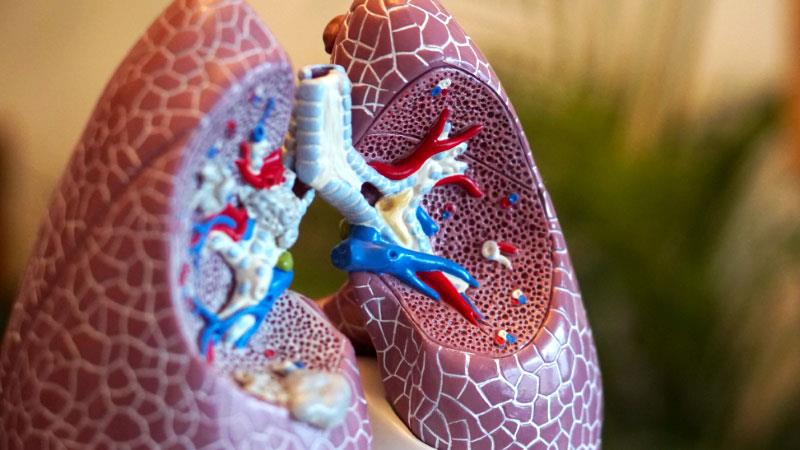West Midlands-led trial finds continuous positive airway pressure (CPAP) reduces need for invasive ventilation in hospitalised COVID-19 patients
Published on 23/08/2021
Results from the RECOVERY-RS trial, which assessed different ways to provide oxygen support for patients in hospital with COVID-19, have found that continuous positive airway pressure (CPAP) reduced the need for invasive mechanical ventilation.
UHB recruited more than 400 patients to the trial – more than one third of the overall total.
The trial compared the use of CPAP (oxygen and positive pressure delivered via a tightly fitting mask), with High Flow Nasal Oxygen (high pressure oxygen delivered up the nose) and standard care (standard oxygen therapy).
All three interventions are commonly used to treat COVID-19 patients before they are moved onto invasive ventilation in a critical care bed, but it was not known which, if any, resulted in better outcomes.
Preliminary data from the trial also suggest that the routine use of high flow nasal oxygenation (HFNO), which can consume large amounts of oxygen, should be reconsidered as it did not improve outcomes for COVID-19 patients compared with conventional oxygen therapy.
Based on the trial results, one person would avoid needing invasive ventilation within intensive care units (ICU) for every 12 people treated with CPAP instead of standard oxygen therapy.
Professor Gavin Perkins, Chief Investigator, UHB Consultant in Intensive Care and Professor in Critical Care Medicine at Warwick Medical School at the University of Warwick said: “The RECOVERY-RS trial showed that CPAP was effective at reducing the need for invasive ventilation, thus reducing pressures on critical care beds.
“By giving patients the most effective treatment to begin with, we can help prevent resource shortages in our NHS and make sure the right type of ventilation is available to patients when it is required.
“This is the first large trial of different types of ventilation in COVID-19. While it is encouraging that these results can help reduce the number of people who require invasive ventilation, it is important to stress that, where it is needed, invasive ventilation can be lifesaving.”


